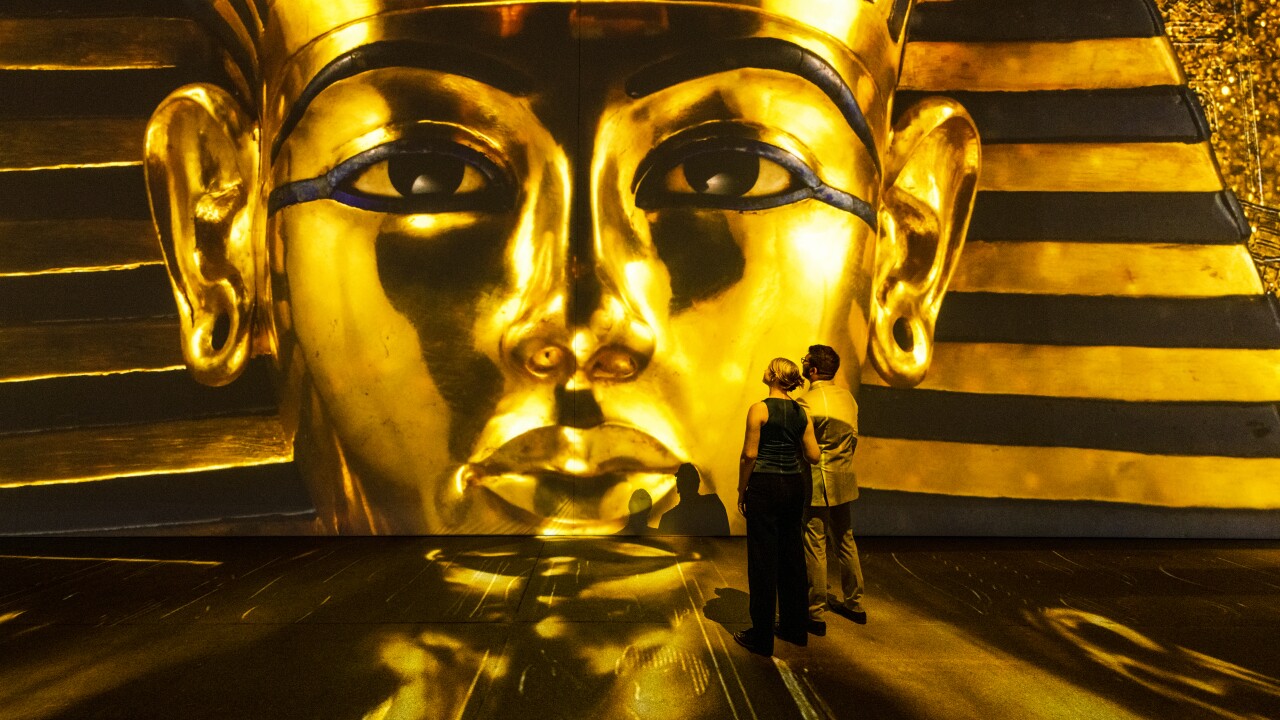
Amidst the bustling streets and ancient wonders of Cairo, the Muhammad Ali Mosque stands as a testament to the enduring beauty and significance of Islamic architecture. Also known as the Alabaster Mosque, this stunning structure is a revered symbol of Egypt’s rich history and its cultural ties to the Islamic world. In this blog post, we embark on a journey to explore the captivating history, architectural elegance, and cultural importance of the Muhammad Ali Mosque.
A Tribute to Muhammad Ali Pasha: The Muhammad Ali Mosque, located atop the Citadel of Cairo, was commissioned by Muhammad Ali Pasha, the Ottoman governor of Egypt in the early 19th century. This mosque was built to celebrate his rule and accomplishments, and it remains a testament to his vision of creating a monument that would endure the test of time.
Architectural Splendor: The Muhammad Ali Mosque is a masterpiece of Ottoman architecture, with its striking dome and towering minarets gracing the Cairo skyline. Its design is heavily influenced by the Blue Mosque in Istanbul, blending elements of Ottoman and Mamluk styles. The mosque’s expansive courtyard, spacious prayer hall, and intricately designed interior contribute to its allure.
Alabaster Majesty: The mosque’s nickname, the Alabaster Mosque, stems from the extensive use of alabaster in its construction. The interior walls, mihrab (prayer niche), and the lower parts of the minarets are adorned with this exquisite white stone, adding to the mosque’s resplendent beauty. The contrast between the alabaster and the blue tiles is a visual delight.
Spiritual Sanctuary: The Muhammad Ali Mosque serves as more than just a place of worship—it’s a spiritual sanctuary that reflects the devotion of the faithful. The mosque’s central dome and lavish decorations inspire a sense of awe and reverence among worshippers and visitors alike. The expansive prayer hall can accommodate a large congregation, further underscoring its importance in the local religious community.
Cultural and Historical Significance: Beyond its architectural marvels, the Muhammad Ali Mosque has played a role in Egypt’s modern history. Its perch atop the Citadel offers panoramic views of Cairo, emphasizing the mosque’s symbolic significance as a guardian of the city. Moreover, the mosque represents Egypt’s ties to the broader Islamic world, acting as a beacon of cultural exchange and religious unity.
Tourist Attraction and Local Icon: The Muhammad Ali Mosque has become a must-visit destination for tourists exploring Cairo’s historical and cultural treasures. Its proximity to other notable sites, such as the Citadel and the Sultan Hassan Mosque, makes it a focal point for those seeking to immerse themselves in Egypt’s rich heritage.
Preservation and Cultural Continuity: Efforts to preserve the Muhammad Ali Mosque ensure that its beauty and significance are safeguarded for future generations. Restoration projects and ongoing maintenance reflect the collective commitment to preserving Egypt’s cultural legacy and sharing it with the world.
When you find yourself in Cairo and are eager to explore the marvels of its archaeological treasures, look no further than Egypt Tours Expert. Our tailored Cairo day tours provide you with the perfect opportunity to delve into the captivating attractions of old Cairo. Immerse yourself in the richness of history as you embark on a journey to uncover the secrets of this ancient city.

Make the most of your layover in Cairo with our exciting Cairo Stopover Tour. Experience the iconic landmarks of this ancient city, including the Pyramids of Giza, the Sphinx, and the Egyptian Museum. With convenient transportation, expert guides, and a well-planned itinerary, this tour ensures an immersive and unforgettable adventure in a limited time frame View Tour Details

Day Trip to Pyramids from Cairo
Embark on a captivating day trip to the Pyramids from Cairo and immerse yourself in the mysteries of ancient Egypt. Our carefully curated itinerary ensures an unforgettable experience as you explore the iconic Pyramids of Giza, Sphinx, and more. Join us on this remarkable journey and witness the grandeur of the ancient world View Tour Details

Day Trip to Abu Simbel from Cairo by Plane
Embark on a mesmerizing day trip to Abu Simbel from Cairo by plane and immerse yourself in the awe-inspiring wonders of ancient Egypt. Discover the monumental temples of Ramses II and Queen Nefertari, marvel at the intricate carvings and colossal statues, and learn about the rich history and legends that surround this UNESCO World Heritage Site. With convenient flights, expert guides, and hassle-free arrangements, our all-inclusive tour offers an unforgettable experience for history enthusiasts and adventure seekers alike View Tour Details

Day Trip to Alexandria from Cairo by Car
Experience the allure of Alexandria on a thrilling day trip from Cairo by car. Explore the rich history and cultural heritage of this enchanting coastal city, visit iconic landmarks like the Library of Alexandria and the Catacombs of Kom El Shoqafa, and immerse yourself in the Mediterranean ambiance. With the convenience of private transportation, expert guides, and a well-crafted itinerary, this day trip promises an unforgettable adventure for history enthusiasts and wanderers alike View Tour Details
Related Egypt Tours Blog

Step into the enchanting world of ancient Egypt at The Egyptian Museum. Home to a vast collection of artifacts, mummies, and treasures, this museum offers a unique opportunity to delve into the past. Join our guided tour to uncover the mysteries of mummies, marvel at Pharaonic treasures, and witness the beauty of millennia-old artifacts View Tour Details

Khan El Khalili Bazaar is a vibrant maze of alleyways, offering a sensory explosion of sights, sounds, and flavors. From traditional handicrafts and textiles to aromatic spices and tea houses, this bazaar captures the essence of Cairo’s rich cultural heritage. Our guided tour ensures you make the most of your visit, discovering hidden gems and engaging with local artisans View Tour Details
Muhammad Ali Mosque FAQs
- What is the Muhammad Ali Mosque? The Muhammad Ali Mosque, also known as the Alabaster Mosque, is a prominent mosque located on the Citadel of Cairo in Egypt. It is one of the most iconic landmarks in Cairo.
- Who was Muhammad Ali? Muhammad Ali Pasha, also known as Muhammad Ali of Egypt, was an Ottoman-Albanian commander who became the de facto ruler of Egypt in the early 19th century. He is known for his modernization efforts and significant impact on Egypt’s history.
- When was the Muhammad Ali Mosque built? The construction of the Muhammad Ali Mosque began in 1830 and was completed in 1848. It was built during the rule of Muhammad Ali Pasha.
- Why was the Muhammad Ali Mosque built? Muhammad Ali ordered the construction of the mosque to mark his reign and to serve as a tribute to his son, Tusun Pasha, who died at a young age.
- What architectural style is the mosque built in? The Muhammad Ali Mosque is built in the Ottoman architectural style, featuring elements of both Ottoman and Islamic architecture. It reflects Muhammad Ali’s connection to the Ottoman Empire.
- Why is it called the Alabaster Mosque? The mosque is often referred to as the Alabaster Mosque due to the extensive use of alabaster stone in its construction, particularly for the exterior walls.
- What is the mosque’s significance? The Muhammad Ali Mosque is a symbol of both religious and political importance. It serves as a place of worship and also represents Muhammad Ali’s legacy and impact on Egypt’s history.
- Can visitors enter the Muhammad Ali Mosque? Yes, visitors are allowed to enter the Muhammad Ali Mosque. However, visitors are expected to dress modestly and remove their shoes before entering.
- What can visitors see inside the mosque? Inside the mosque, visitors can admire the intricate details of the interior, including the ornate decorations, carpets, chandeliers, and the impressive central dome.
- What is the most notable feature of the Muhammad Ali Mosque? The most notable feature of the mosque is its stunning central dome, which is surrounded by smaller domes and minarets. The domes and minarets are characteristic of Ottoman architecture.
- Is there an entrance fee to visit the mosque? Yes, there is usually an entrance fee for visitors to enter the mosque. The fee may vary for tourists and locals.
- Can visitors climb the minarets of the mosque? Yes, visitors are often allowed to climb the minarets of the Muhammad Ali Mosque, which provides a panoramic view of Cairo and the surrounding area.
- What is the mosque’s role in modern times? The mosque continues to function as a place of worship and is a popular destination for both tourists and locals. It also serves as a cultural and historical landmark in Cairo.
- Are there any restrictions for visitors to the mosque? Visitors are expected to dress modestly when entering the mosque. Women should cover their shoulders and wear skirts or pants that cover the knees. Men should also avoid wearing shorts.
- Can visitors take photographs inside the mosque? Photography regulations may vary, but in general, photography is often allowed inside the mosque. It’s recommended to follow any guidelines provided by the mosque authorities.
- Is the Muhammad Ali Mosque illuminated at night? Yes, the mosque is often illuminated at night, creating a stunning and picturesque view from various parts of Cairo.
- Is there a specific time for visitors to enter the mosque? The mosque usually follows specific visiting hours. It’s advisable to check the mosque’s opening hours before planning your visit.
- Is the mosque accessible to people with disabilities? Accessibility may vary, but many efforts have been made to improve access for people with disabilities. However, due to the historical nature of the structure, there might be limitations in certain areas.
- What other attractions are near the Muhammad Ali Mosque? The mosque is located on the Citadel of Cairo, which also houses other historical structures and museums, including the Mosque of Sultan al-Nasir Muhammad and the Military Museum.
- How does the Muhammad Ali Mosque contribute to Egypt’s cultural heritage? The Muhammad Ali Mosque is a significant architectural and cultural monument that represents both Ottoman and Egyptian history. It stands as a symbol of Muhammad Ali’s rule and legacy, as well as a place of worship and a popular tourist attraction in Cairo.

